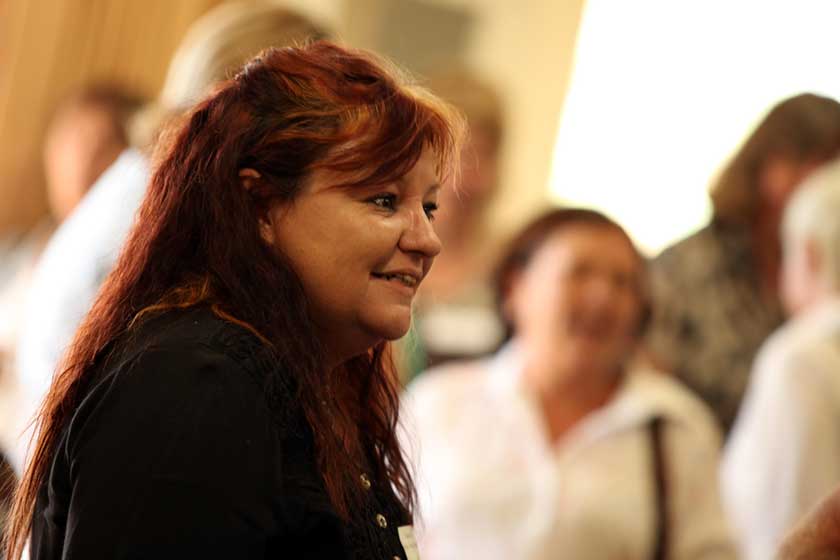National Reconciliation Week 2020 - Vicki Thom
28 May 2020

My name is Vicki Thom. I am a proud Wiradjuri Woman from Peak Hill NSW. I live and work on Darug land.
I work as the Aboriginal Community Liaison Officer at Hawkesbury District Health Service. I have been in this position for 16 years now and have I loved every day of it.
I live and work in my community. My position covers everything from before birth to after death, in all areas of life. I support the Aboriginal and Torres Strait Islander community members, patients and clients and fellow caregivers in the hospital and community health.
I assist and help facilitate Aboriginal Stepping On Programs, Sorry Day Ceremonies, Mana-Gumaal (Darug for Gathering Friends), Aboriginal Seniors Group and NAIDOC celebrations. I also sit on a
number of community committees, including the Reconciliation Action Plan Committee for Hawkesbury City Council and St John of God Health Care. However, I always consult and ask permission from our Darug Elders, before proceeding with anything.
My role is very interesting and keeps me on my toes. Each day brings a new surprise and new challenges.
I have no social worker or university training. My training is from watching, listening and learning from our Elders and community members. All I have is life skills, and I believe with my mum, my Elders and my community, I am the person I am today.
My mum is one of the Stolen Generation.
When mum was a young girl, the welfare man came to the house. He had been told there was a little dark girl living there with a white woman (my grandmother) and black man (my grandfather).
Each time the welfare man visited, my grandparents would show them a birth certificate. Mum said there were three birth certificates with three different names. My grandparents thought everything was fine until the welfare man came back and questioned the different birth certificates for the same child.
Mum was taken away from her parents and would stay in places with many children and sometimes she would stay with other people in their homes.
She saw her mother many years later but never found her father. My grandparents had separated because of what happen to her as a little girl.
Mum used to hide my brother and me in the cupboard every time a stranger came to the house. She was scared someone would take us away, like they did her.
I didn’t know this story until I was 13 years old. After understanding my mum’s history, I finally felt a calmness come over me. I felt like I finally belonged. Proud of who I am, proud to be Aboriginal and very proud of my mum, for her strength.
To me, Reconciliation means acceptance and acknowledgement to all by all.
My hope for the future at Hawkesbury District Health Service and my community is to have an Aboriginal medical service for the area, to have an Aboriginal unit on site and to employ more Aboriginal community members.
And for all Australian people to celebrate our beautiful culture and to walk beside us.
You may be interested in...
